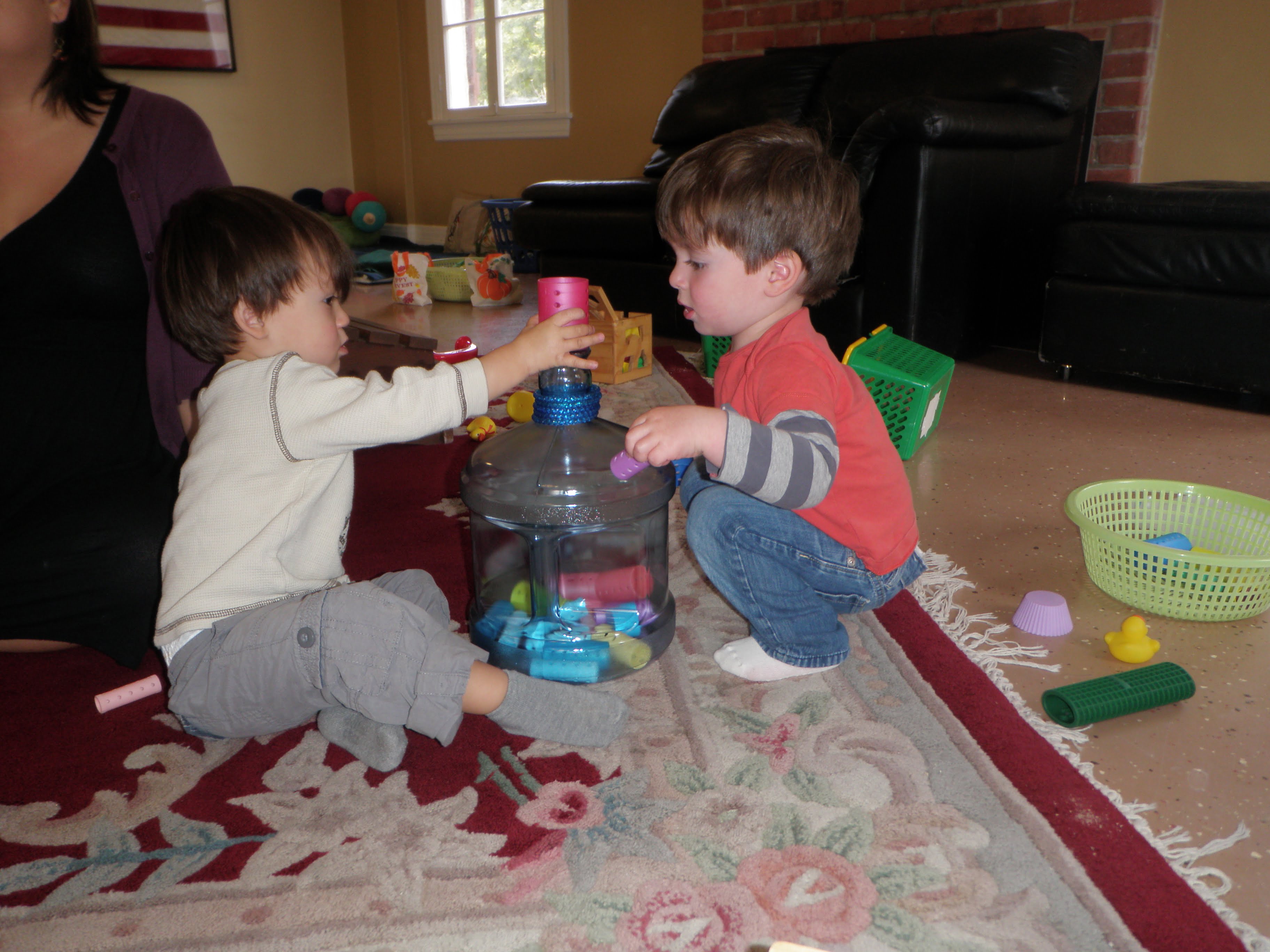In our online RIE® Parent-Infant Guidance™ Class, we talked about different questions and concerns, such as:
Will our children gain a “bad” habit of demanding “sweet” food and avoiding other healthy foods?
I believe this is a deeper question. Parents are concerned about all kinds of “bad” habits: playing with gadgets too much, picking at your nails, eating junk food, etc.
Recently I heard a story about a little girl who developed a fascination with chocolate. Nothing “worked”; parents tried to provide all kinds of limits. They tried offering chocolate only after a meal. But it created a new issue — what to do if the girl is not hungry? Her parents definitely didn’t want her to force her to eat in order to get the chocolate. They tried to move the meals to a later time, but it didn’t resolve the issue.

I feel like it is more than “just a habit,” more than “just liking the sweet taste of chocolate” and requires slow and patient untangling of the figurative “yarn”.
Power struggles are never pleasant and it takes time to shift the relationship back to cooperation.
I will try to summarize what helps to not get into a power struggle in the first place.
Few ideas on how to approach an issue with respect and consideration of your child’s perspective:
1. Variety of experiences
Offer a variety of experiences: exploration, play, food, nature, music, books and etc. Create a safe “yes” space – it will allow you to limit the number of times you need to say “no.”
All this will add to self-motivation, initiation, self-entertaining, healthy habits, curiosity, and cooperation.
It is hard to make healthy choices when you have very few options to choose from. This is why a variety of experiences is essential. For example: When a 6-year-old child only likes to play with Legos, it might be difficult to have him choose other activities besides gadgets and TV.
2. Independence
Support independence by allowing free play, free exploration, feeding by themself, and actively participating in the caregiving routine). It can be tempting to show a young child how to play with toys, especially when toddlers move to more complicated toys with some cost-and-effect features such as sorters, puzzles, and stacking rings… wait and see what your child will decide to do with the toy.
3. Trust
Trust your children by giving them time and space. Trusting children when they show us that they are not hungry; letting them choose to go play and not finish their meal (this one can be particularly hard). Trusting children to find toys and items to explore and play with.
4. Connect
Stay connected with your child. Spending time together – being fully present and showing true interest. The connection is key for almost everything, I would say. Notice small signs of cooperation.
5. Narrate
Narrate, and talk with your child about why you do things the way you do them. When we narrate, we help children process and integrate the information.
6. Provide choices
Would you like the red bib or the blue one? Now or in a minute? Would you like me to carry you to the changing diaper area or do you want to walk by yourself?
7. Projecting
Avoid projecting fears or bad experiences we have had in the past on your child. (Pay attention to the comments we make such as “Ah, you always…” “My son is such a picky eater…” ” Oh, you are never….”)
8. Limits
Set clear limits. Limits are not about punishment or who wins/loses. Be honest when setting limits while you don’t need to pretend to be angry, you also don’t need to pretend to be overly sweet and jolly. We can set limits calmly, matter-of-factly with empathy for a child’s emotions. Acknowledge the feeling; sometimes if you can guess it right, it can bring the energy down immediately. “I hear you…you are crying because you want more berries.”
9. Don’t get offended
Be prepared for a defiant reaction from your child; prepare yourself not to feel offended. When children catch us off guard we are more likely to react rather than respond. When we react very emotionally to children, they might want to know more about our emotions and will repeat over and over again (saying “bad” words, throwing food, sticking their tongue out, etc)
Do you want to find out 5 Easy Ways to Get Your Kids To Eat More Fruits and Veggies?
Let me know if you need more information about RIE® Parent-Infant Guidance™ Classes.
Wishing you all the best in this difficult yet exciting journey of parenting!
Warmly,
Teacher Kira














